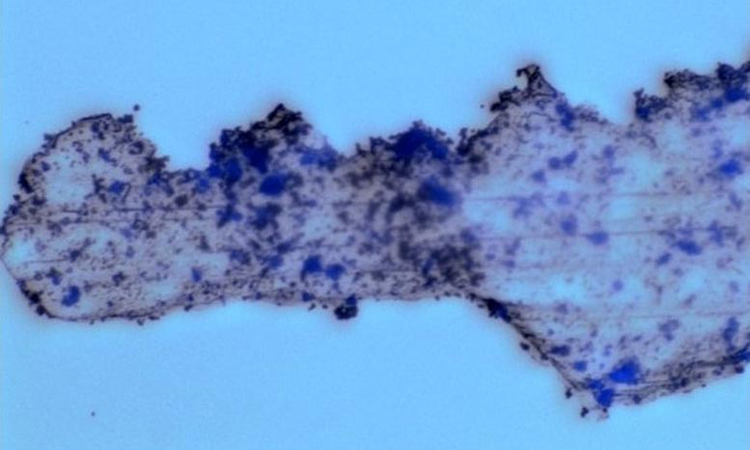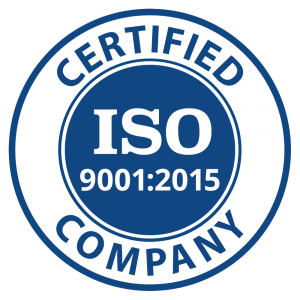Small pieces of plastic are everywhere, stretching from urban environments to pristine wilderness. Left to their own devices, it can take hundreds of years for them to degrade completely. Catalysts activated by sunlight could speed up the process, but getting these compounds to interact with microplastics is difficult. In a proof-of-concept study, researchers reporting in ACS Applied Materials & Interfaces developed self-propelled microrobots that can swim, attach to plastics and break them down.
While plastic products are omnipresent indoors, plastic waste and broken bits now litter the outdoors, too. The smallest of these — microplastics less than 5 mm in size — are hard to pick up and remove. In addition, they can adsorb heavy metals and pollutants, potentially harming humans or animals if accidentally consumed. So, previous researchers proposed a low-energy way to get rid of plastics in the environment by using catalysts that use sunlight to produce highly reactive compounds that break down these types of polymers. However, getting the catalysts and tiny plastic pieces in contact with each other is challenging and usually requires pretreatments or bulky mechanical stirrers, which aren’t easily scaled up. Martin Pumera and colleagues wanted to create a sunlight-propelled catalyst that moves toward and latches onto microparticles and dismantles them.

To transform a catalytic material into light-driven microrobots, the researchers made star-shaped particles of bismuth vanadate and then evenly coated the 4-8 μm-wide structures with magnetic iron oxide. The microrobots could swim down a maze of channels and interact with microplastic pieces along their entire lengths. The researchers found that under visible light, microrobots strongly glommed onto four common types of plastics. The team then illuminated pieces of the four plastics covered with the microrobot catalyst for seven days in a dilute hydrogen peroxide solution. They observed that the plastic lost 3% of its weight and that the surface texture for all types changed from smooth to pitted, and small molecules and components of the plastics were found in the left-over solution. The researchers say the self-propelled microrobot catalysts pave the way toward systems that can capture and degrade microplastics in hard-to-reach locations.
Read more: High quality PE shrink film for bottled drinking water
Reference: “A Maze in Plastic Wastes: Autonomous Motile Photocatalytic Microrobots against Microplastics” by Seyyed Mohsen Beladi-Mousavi, Soňa Hermanová, Yulong Ying, Jan Plutnar and Martin Pumera, 19 May 2021, ACS Applied Materials & Interfaces.
DOI: 10.1021/acsami.1c04559
The authors acknowledge funding from the European Regional Development Fund. (According to SciTechDaily)
Why choose us?

Bao Ma Production & Trading Co Ltd is complying with the ISO 9001-2008 which ensures the quality control system and the ability to produce different materials and sizes of poly bags and rolls, including:
- Packing products for agricultural, aquatic, food consumption, industrial purposes.
- Zip-lock bag, shopping bag, garbage bag, plastic carriers.
- Plastic sheeting
- Perforated plastic roll
- Poly roll of 2m – 4m measurement for the use of lining prawn-raising ponds, for construction sites and sewage system usage, and as cover sheets for agricultural and industrial purposes.
- Printing services on packages of up to 6 colors with customization
- Trading various plastic raw materials such as PP, HDPE, LDPE, LLDPE…
So, please contact us via hotline: (028) 37540 999 – 096 314 5959 and let us be honored to serve you in the best way possible.
BAO MA PRODUCTION & TRADING COMPANY LIMITED
Address: No. 21 Tan Tao Industrial Park, Road No. 3, Tan Tao A Ward, Binh Tan District, HCMC
Tel: (028) 37540 999 – 096 314 5959
Email: info@poma.com.vn
Website: www.poma.com.vn



 Tiếng Việt
Tiếng Việt